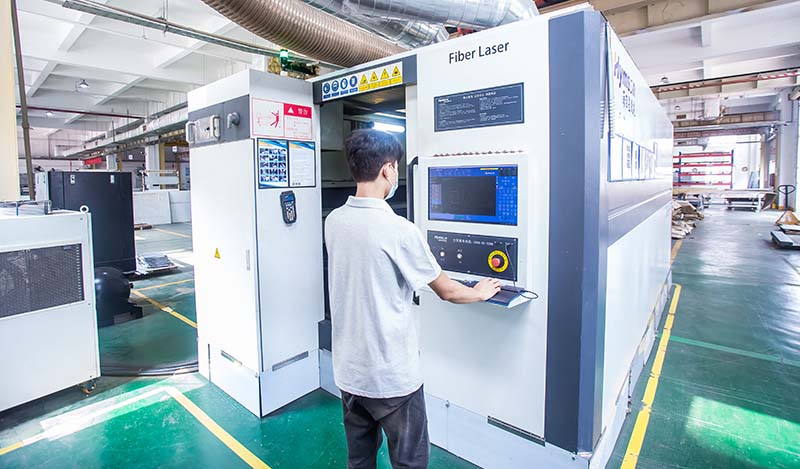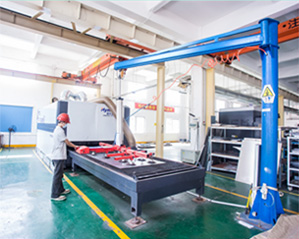Präzisionshardware Hersteller kundenspezifischer Lösungen
Contents
In the healthcare sector, the precision and reliability of medical equipment are paramount. One of the critical components that ensure the efficiency and safety of these devices is high-quality medical sheet metal. The manufacturing of medical equipment using precision sheet metal fabrication (SMF) processes provides the necessary structural integrity, durability, and precision required for medical devices. As the demand for advanced healthcare technologies increases, so does the need for innovative manufacturing solutions that rely on medical sheet metal.
In this article, we will explore the significance of precision sheet metal fab in the development of medical equipment. We will also discuss the key considerations for manufacturers in the medical device industry, highlighting how specialized fabricators play a crucial role in producing reliable, high-performance medical products.
Precision sheet metal fab refers to the process of transforming flat metal sheets into specific shapes, using a variety of techniques such as cutting, bending, welding, punching, and assembling. In the context of manufacturing medical equipment, this process ensures that components are made with extremely tight tolerances, which are essential for the performance of medical devices.
Medical sheet metal can be made from a variety of materials, including stainless steel, aluminum, and titanium. These materials are chosen for their durability, resistance to corrosion, and ability to withstand sterilization processes. Stainless steel, in particular, is widely used due to its strength and biocompatibility, making it ideal for surgical instruments, medical enclosures, and other critical components.
The design phase is crucial in medical equipment manufacturing. When it comes to precision sheet metal fabrication, engineers must work closely with medical device manufacturers to ensure the design is both functional and manufacturable. Factors such as ease of sterilization, strength, and the ability to resist wear and tear must be considered to meet the demanding standards of the healthcare industry.
Various techniques are employed in the fab of medical sheet metal parts, including:
Each of these processes contributes to the overall quality of the medical equipment, ensuring that each part meets the necessary specifications and regulatory standards.

Medical equipment needs to perform consistently in high-stress environments. Precision sheet metal components offer superior durability, enabling devices to withstand the rigors of daily use, harsh sterilization processes, and potential impacts. The strength of the metal ensures that medical devices can endure prolonged exposure to high temperatures and pressures without losing functionality.
When it comes to medical devices, precision is non-negotiable. A small error in the manufacturing process can lead to malfunctions, compromising patient safety. A precision sheet metal fabricator ensures that each part is created with tight tolerances, allowing for perfect fitment and optimal performance. This precision is especially important in surgical instruments and diagnostic equipment, where any deviation from the intended design could be critical.
While precision sheet metal fabrication may initially seem expensive due to the high quality of materials and equipment involved, it is a cost-effective solution in the long term. The scalability of the process allows manufacturers to produce large quantities of parts, meeting the growing demand for medical devices. Additionally, advanced fabrication techniques reduce material waste, lowering production costs and making the process more efficient.
A precision sheet metal fabricator specializing in the medical industry plays a critical role in ensuring the production of high-quality, functional, and compliant medical equipment. These fabricators are skilled in working with a range of materials and manufacturing processes, enabling them to create parts that meet the specific needs of medical device manufacturers.
A skilled fabricator also ensures that all parts adhere to the strict regulatory standards required in the medical industry, such as ISO 13485, FDA regulations, and CE marking. By working with experienced fabricators, medical manufacturers can guarantee that their products are safe, reliable, and ready for clinical use.
Collaboration between medical device manufacturers and sheet metal fabricators is essential for the successful production of medical equipment. Early-stage design collaboration allows fabricators to provide valuable insights into manufacturability, material selection, and cost-saving measures. This partnership ensures that the final product is both cost-effective and meets all performance criteria.

Medical sheet metal fabrication is a highly specialized process that requires strict attention to detail. Maintaining consistent quality across large batches of parts can be challenging, particularly when dealing with complex geometries and tight tolerances. However, with the right tools, technology, and skilled technicians, a precision sheet metal fabricator can ensure that each part meets the highest standards.
The medical industry is subject to numerous regulations and standards. Ensuring compliance with these rules is critical for manufacturers and fabricators alike. Medical equipment must be safe for use, sterile, and able to function as intended. Precision sheet metal fabricators must stay up-to-date with the latest regulatory requirements and incorporate them into their manufacturing processes to ensure compliance.
The demand for precision and reliability in medical equipment will only continue to grow as healthcare technologies evolve. Precision sheet metal fabrication plays a critical role in meeting these demands, ensuring that medical devices are safe, durable, and effective. As the industry advances, fabricators must continue to innovate, adopting new technologies and processes to stay ahead of the curve. By partnering with a skilled precision sheet metal fabricator, medical device manufacturers can ensure the production of high-quality equipment that meets the highest standards of safety and performance.
In conclusion, the role of medical sheet metal fab in the manufacture of medical equipment is indispensable. It provides the structural integrity, precision, and durability required for the devices that save lives and improve patient outcomes worldwide.